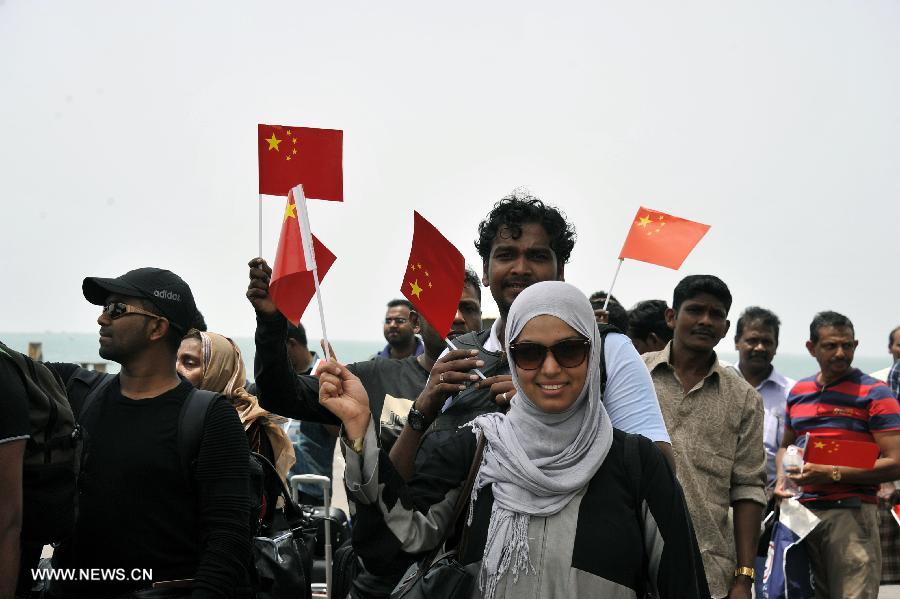China impresses with Yemen evacuation
china.org.cn / chinagate.cn by Tim Collard, April 10, 2015 Adjust font size:
|
|
|
A Chinese navy ship carrying 83 Chinese and Sri Lankan nationals evacuated from Yemen arrived Tuesday morning at the Port of Djibouti, April 7, 2015. [Photo/Xinhua] |
However, the problem with a successful operation is that it tends to raise expectations for the future. China has long known that the Middle East is not a region in which deeper involvement than is absolutely necessary is desirable. The region remains unstable, and there is no sign that this will improve.
The very necessity of this operation demonstrates China's recognition that its former assertion – that all such matters are the internal affairs of nations and can and should be left to their sovereign authorities – is no longer sustainable in the 21st century. Yemen is far from the only country in the Middle East where the country's sovereign authority has wholly or partially lost control. There have also been some disquieting flare-ups in Africa, a continent where China is heavily involved in infrastructure and natural resource projects.
China has rightly been critical of Western tendencies to decide in favor of precipitate and ill-thought-out intervention in troubled regions; there have been some very bad warnings in recent years. But it must be remembered that the West never starts out by trying to impose wholesale changes. It usually begins with small-scale interventions to protect some vital interest before falling victim to "mission creep." It is not unlikely that China will get similarly drawn into the mess that is the Middle East.
Indeed, the most dangerous regional problem – that caused by the destructive and uncontrolled entity calling itself the Islamic State – already has tentacles reaching into China. Given the number of Chinese workers living in these unstable regions, it is not difficult to foresee further difficulties of this type for China.
Of course China's constructive contribution to resolving these intractable issues will be welcome. The Chinese evacuation from Yemen has won the applause of the rest of the world. Let us hope that future interventions, should they become necessary, do not have the result of setting the great powers at odds.
